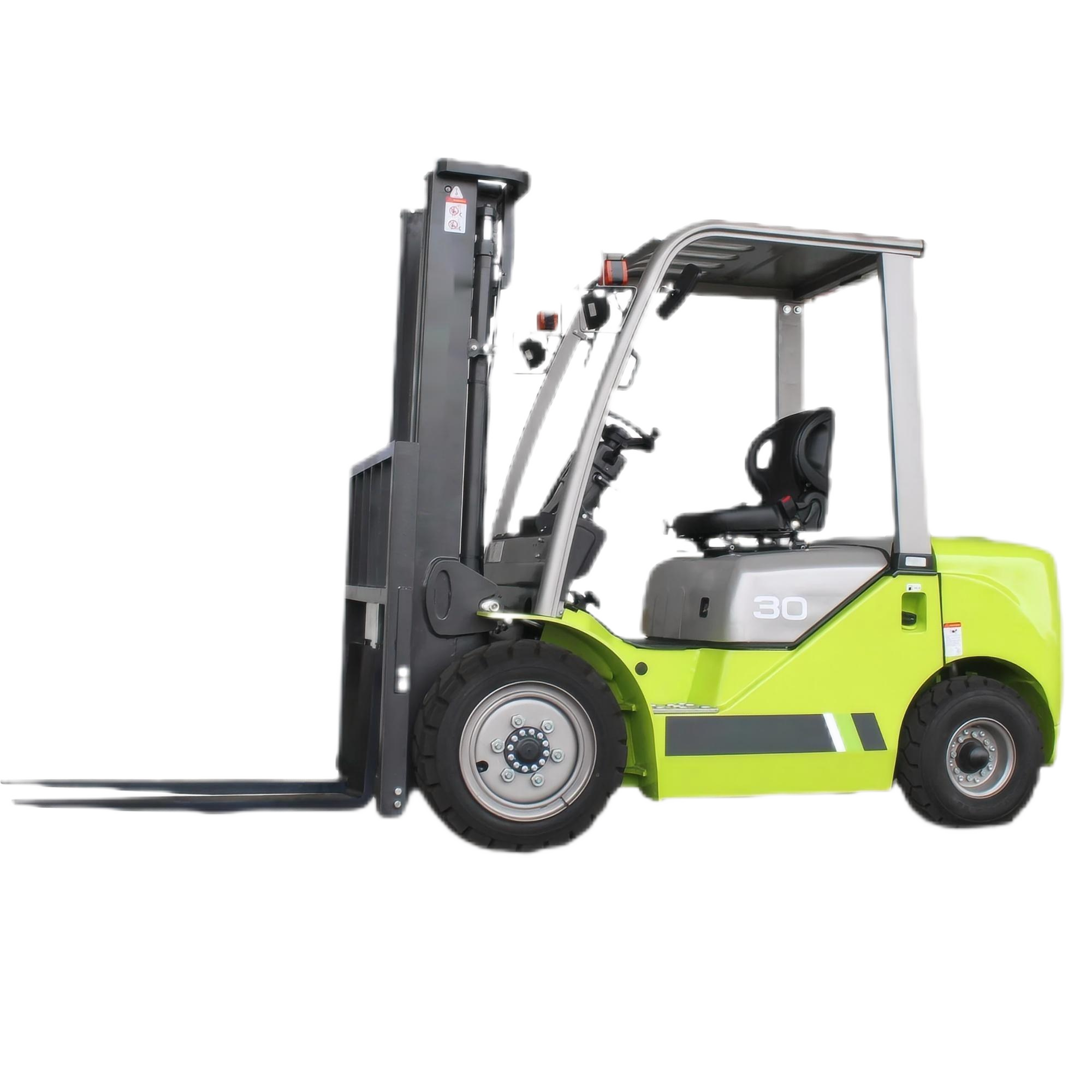Non-standard electric forklifts are electric forklifts designed and manufactured according to customers' special needs. The following will introduce them from the dimensions of customization types, advantages, application scenarios, etc.:

Customization Types
- Customization of Load Capacity
The load capacity can be increased from the conventional several tons to dozens of tons according to actual needs to meet the handling requirements of large-tonnage goods. For example, in some large mechanical manufacturing enterprises that need to handle heavy mechanical equipment components, non-standard electric forklifts with a load capacity of 20 tons or even higher can be customized. - Customization of Size Specifications
This includes the length, width, and height of the vehicle body, as well as the length, width, and spacing of the forks. For instance, in the warehousing environment with narrow aisles, non-standard electric forklifts with narrow vehicle bodies can be customized to enable flexible shuttling; for handling extra-long goods, the forks can be extended to appropriate sizes. - Customization of Functional Configurations
Special functional attachments such as clamps, rotating clamps, side shifters, etc., are added to meet the handling and loading/unloading needs of different goods. For example, when handling coiled goods, a clamp attachment can be equipped; for goods that need to be accurately loaded/unloaded at different positions, a side shifter can be installed.
Advantages
- High Adaptability
It can perfectly fit the work requirements of specific industries and scenarios, avoiding the low work efficiency caused by the mismatch of functions or sizes of standard forklifts. For example, in the tobacco industry, non-standard electric forklifts can be customized according to the size and weight of tobacco cases to achieve efficient handling and stacking. - Improved Work Efficiency
Optimized design for specific tasks enables faster and more precise material handling. For example, in automated production lines, customized non-standard electric forklifts can precisely match the rhythm of the production line to achieve rapid material supply and timely transfer of finished products. - Reduced Labor Intensity
Humanized design and intelligent functions alleviate the work burden of operators. For example, equipped with a comfortable seat, convenient operation handles, and an electric power steering system, etc., to prevent operators from getting tired easily during long-term work.
Application Scenarios
- Warehousing and Logistics
In large warehouses, for non-standard size goods or special storage layouts, non-standard electric forklifts can be customized with special forks or vehicle body structures to achieve efficient goods storage and retrieval. In cold chain warehousing, non-standard electric forklifts that can adapt to low-temperature environments can be customized to ensure normal operation at low temperatures. - Manufacturing Industry
When automobile manufacturing enterprises handle automobile parts, non-standard electric forklifts with special fixtures can be customized to facilitate the grabbing and handling of parts in various shapes. In the electronics manufacturing industry, to avoid damage to electronic components caused by static electricity, non-standard electric forklifts with anti-static functions can be customized. - Ports and Terminals
Used for handling large containers or special-shaped goods, non-standard electric forklifts with large tonnage and special lifting gear can be customized to meet the needs of port cargo loading and unloading.
Precautions
- Quality and Safety
Choose qualified and reputable manufacturers to ensure the quality and safety of non-standard electric forklifts, and avoid ignoring key safety performance indicators due to customization. - Maintenance
Due to the particularity of non-standard electric forklifts, their maintenance may require more professional technology and components. Therefore, it is necessary to clarify the after-sales service content with the manufacturer to ensure that the equipment can receive timely and effective maintenance during use. - Cost Control
The cost of customizing non-standard electric forklifts is usually higher than that of standard forklifts. Before customization, a full cost-benefit assessment should be conducted to ensure that the customized forklift can bring sufficient value returns to the enterprise.


